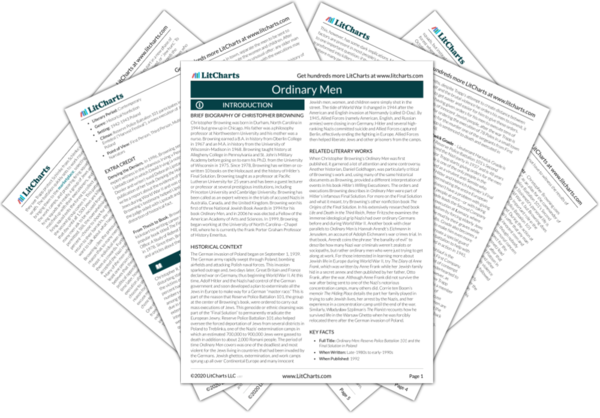Christopher Browning uses “Bruno Probst” as an alias for a policeman in Reserve Police Battalion 101. The book makes heavy use of Probst’s interrogation records to describe events and actions the battalion took part in. Although relatively little is shared about Probst’s own involvement (or noninvolvement) in the violence, his perspective on these events is useful because he tends to be more honest than others. For instance, he doesn’t just discuss how Poles would help the battalions track down Jews hiding in the forests during the judenjagd in order to be rewarded; he also relays that some Poles who tried to hide Jewish friends and neighbors would be executed, a fact that most of the other men did not address, since it made their own actions look worse. Probst’s statements about violence used against non-Jews (namely the Poles) highlight how willing most of the men in the battalion were to use violence once they became habituated to it after Józefów.
